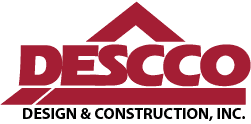In today’s rapidly evolving healthcare industry, medical office buildings are under increasing pressure to meet growing patient demand, adapt to new technologies, and accommodate changes in healthcare delivery. One innovative solution that is gaining traction is modular construction. This approach to building has numerous advantages, including faster build times, cost-effectiveness, flexibility, and the ability to future-proof medical spaces. For healthcare providers, this can mean less disruption, lower costs, and greater adaptability as the needs of their patients and the healthcare industry evolve, making it an invaluable strategy in medical construction!
What is Modular Construction?
Modular construction refers to a building method where individual components or modules of a building are constructed off-site before being transported to the construction site for assembly. These components are designed to work together seamlessly, allowing for faster construction and greater precision. In the context of medical office building construction, modular solutions can include everything from exam rooms and telemedicine spaces to entire medical suites, all built to meet the highest standards of healthcare facility requirements.
Faster Build Times
One of the biggest advantages of modular construction is the reduced build time. Since the modules are pre-fabricated while the site is being prepared, construction timelines can be shortened. Traditional construction can take months, if not years, to complete, but by incorporating modular components, a space can be prepared for occupancy and a return on investment much faster.
For example, healthcare providers facing an urgent need for additional patient care spaces can benefit from modular construction by quickly expanding their facilities. A modular exam room can be set up in less time than a traditional build. This expedited construction process means less disruption to daily operations and an ability to serve patients without unnecessary delays.
Cost Efficiency and Budget Control
Modular construction can also offer cost savings, which is crucial in the healthcare industry, where budgets for medical office buildings can be tight. With modular construction methods, teams can minimize waste, reduce expenses, and avoid costly delays that often come with traditional construction projects. The controlled environment also allows for more predictable costs, giving medical facility owners better control over their budgets. Additionally, because the construction time is reduced, healthcare providers can begin generating revenue from their new spaces much sooner than with a conventional build.
Adaptability and Flexibility
Another significant advantage of modular construction in medical office building construction is the ability to easily adapt to future needs. As healthcare continues to evolve, so do the types of spaces needed in medical office buildings. Modular construction allows for flexibility in designing and customizing spaces that can be reconfigured as requirements change.
For example, in response to the growing demand for telemedicine, DESCCO Design and Construction can easily design modular telemedicine spaces within a medical office building. These spaces can be updated with the latest technology to accommodate virtual visits between patients and healthcare professionals. As telehealth continues to expand, the spaces can be adjusted and repurposed to accommodate additional telemedicine stations, offering the adaptability required in modern healthcare.
Quality and Safety Standards
Although modular construction is faster and more flexible than traditional methods, it does not compromise on quality. In fact, the controlled factory environment used in modular construction allows for excellent consistency and quality control. For healthcare providers, meeting stringent safety standards is crucial. Modular medical office buildings can include all the necessary requirements for medical spaces, such as proper ventilation, sanitation systems, and specialized medical equipment installations. Whether it’s exam rooms, imaging suites, or waiting areas, modular construction allows for high-quality medical spaces that meet the specific needs of patients and medical staff.
Sustainability Benefits
Sustainability is an increasingly important factor in healthcare construction, and modular construction offers several environmental benefits. Since a significant portion of the construction is completed off-site, there is less waste generated at the building site. The controlled production environment also ensures that materials are used more efficiently, reducing the carbon footprint of the project.
Furthermore, many modular buildings are designed with energy efficiency in mind, incorporating sustainable materials and energy-saving technologies. Healthcare providers can reduce their facility’s overall environmental impact while also benefiting from long-term cost savings through energy-efficient design.
Working with DESCCO
At DESCCO, we specialize in medical construction, tailoring each project to the unique requirements of healthcare providers. Whether you need additional exam rooms, telemedicine spaces, or a full facility expansion, our construction methods can provide the flexibility and speed required to meet today’s healthcare challenges. Our team works closely with healthcare providers to design spaces that not only meet industry regulations and standards but also support future growth and technological advancements.
Modular construction offers a compelling solution for medical office buildings, combining speed, flexibility, cost efficiency, and adaptability. As healthcare continues to evolve and demands change, it helps to ensure that medical facilities can keep up with these shifts without sacrificing quality or safety. With experts like DESCCO by your side, you can transform your vision for a modern, adaptable medical space into reality! Interested in learning more? Make sure to contact our team today.
